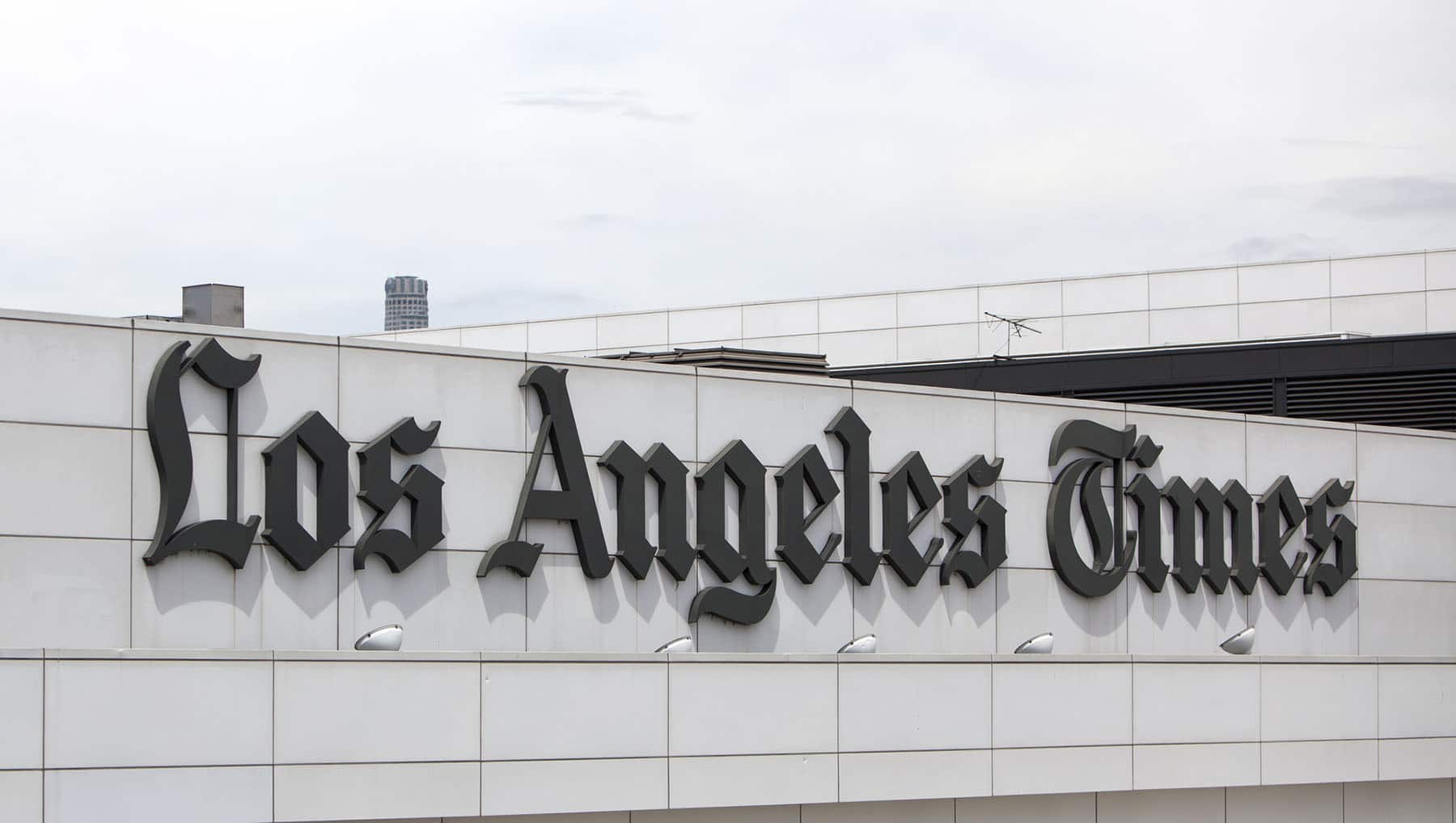 Photo from Deposit Photos
Photo from Deposit Photos The pro-Israel media watchdog CAMERA [Committee for Accuracy in Middle East Media Reporting in America] wrote an open letter to The Los Angeles Times expressing “grave concern” over some of their reporters signing an anti-Israel letter.
CAMERA Executive Director Andrea Levin and Israel Office Director Tamar Sternthal wrote to Times Executive Chairman Patrick Soon-Shiong, Executive Editor Kevin Merida and Managing Editors Scott Kraft and Kimi Yoshino in a July 12 letter that nine Times journalists signed the anti-Israel June 9 letter, two of whom were anonymous. The June 9 letter, “An open letter on U.S. media coverage in Palestine,” argues that the media has whitewashed “Israel’s systematic oppression of Palestinians.” As examples, the letter points to reports from Human Rights Watch and B’Tselem calling Israel an apartheid state.
“These terms—apartheid, persecution, ethnic supremacy—are increasingly gaining institutional recognition after years of Palestinian advocacy, and we, as journalists, need to examine whether our coverage reflects that reality,” the letter states.
The letter also decries the coverage of Hamas rocket strikes against Israel as being treated as equally as Israeli strikes against Palestinians, arguing that the Israeli strikes caused far more damage than the Palestinian strikes did and therefore media reporting should reflect that. Additionally, the letter argues that referring to the potential evictions of Palestinian residents in the Sheikh Jarrar neighborhood of East Jerusalem shouldn’t be referred to as “evictions” because doing so “ignores the well-documented aim of the Israeli government to establish and maintain ethnic dominance over Palestinians.”
“By signing onto such a politically motivated and bigoted statement, they are taking a disgraceful stand against the ethical framework that has guided responsible journalism for the better part of a century: namely, the Society of Professional Journalists’ Code of Ethics (SPJ Code), which clearly sets forth the position that ‘impartiality should still be a reporter’s goal,’ even in today’s ‘superheated political environment,’” Levin and Sternthal wrote to the Times. They added that the United States was ranked last in terms of the public’s trust in the media in a recent Reuters Institute for the Study of Journalism survey.
“By signing onto such a politically motivated and bigoted statement, they are taking a disgraceful stand against the ethical framework that has guided responsible journalism for the better part of a century.”
“We are greatly troubled by the ailing relationship between the American public and its media,” Levin and Sternthal wrote. “We are certain you share this concern. Regrettably, The Los Angeles Times journalists who signed the Open Letter do not share that concern and their call to subvert core journalistic norms will worsen the media’s disastrous standing in public opinion and your paper’s reputation in particular.” They urged the Times to condemn the June 9 letter, arguing that it calls for “a radical, false, anti-Israel narrative in media portrayals.”
However, Levin and Sternthal stated that the recent coverage of Israel in the Times has reflected an anti-Israel bias, pointing to a June 8 article that portrayed “unequivocal Palestinian calls to massacre Jews and destroy the state of Israel as a struggle ‘for recognition and equality” and a June 7 article that focused on Israeli strikes of the Al Shorouq tower in the Gaza Strip but failed to mention that the tower “housed Hamas military intelligence offices and communications equipment for transmitting tactical military information to and from the terrorist organizations in the Gaza Strip,” per the Israel Defense Force.
Levin and Sternthal stated that the recent coverage of Israel in the Times has reflected an anti-Israel bias.
“We, as members of the public, urge you to protect the industry’s longstanding commitment to ethical journalism,” Levin and Sternthal wrote. “Reject the partisan agenda of journalists who have declared war on the most basic values of your profession. In these superheated political times, ethical journalists who practice their profession with integrity are the invaluable safeguard of our shared democracy, now more than ever.”
A spokesperson from the Times said in a statement to the Journal, “We are constantly reviewing our coverage of this important subject and we welcome and take seriously the concerns raised by all parties, which inform our daily discussions. We remain committed to Middle East coverage that is fair and complete.”























 More news and opinions than at a Shabbat dinner, right in your inbox.
More news and opinions than at a Shabbat dinner, right in your inbox.